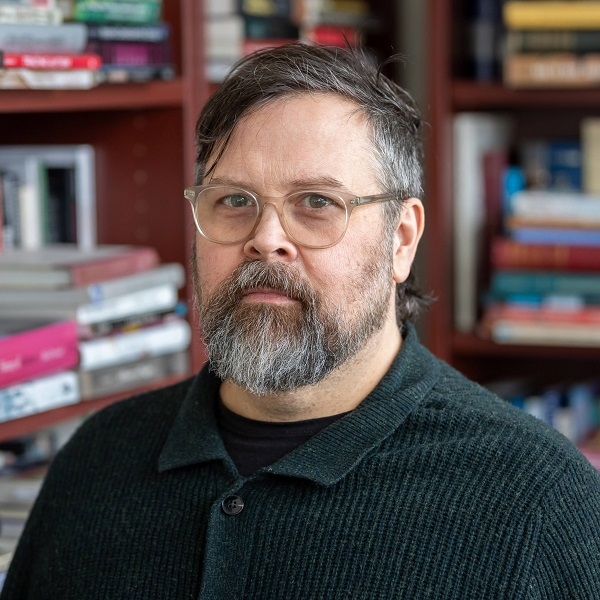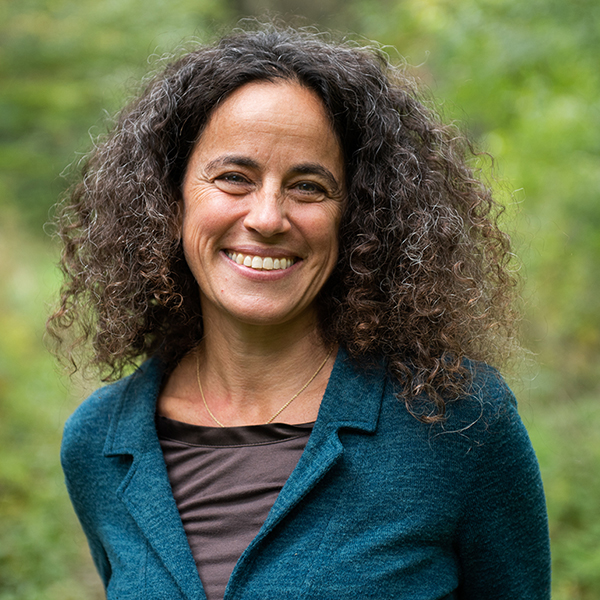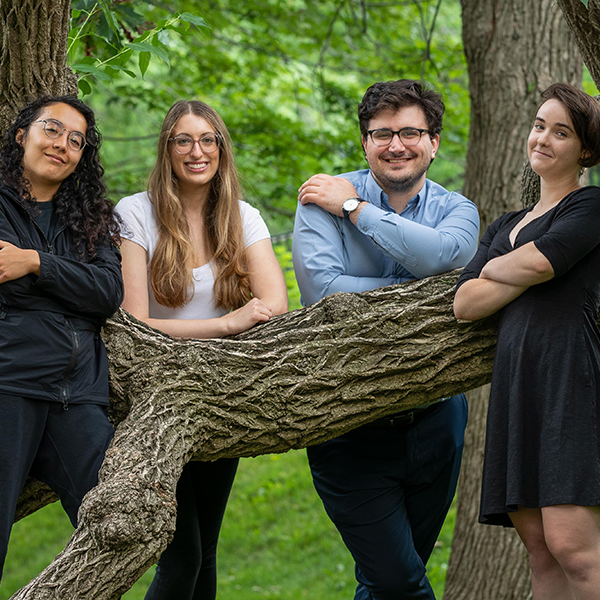Earlier this month, the McGill Interdisciplinary Initiative in Infection and Immunity (MI4) announced the 20 recipients of the second round of funding from the MI4 Emergency COVID-19 Research Funding program.
The McGill researchers supported by this MI4 initiative will pursue projects that look at the COVID-19 pandemic and its ramifications in a wide variety of ways – from an exploration of how factors like minority status, mental health and socioeconomic status affect how well individuals are able to adopt COVID-19 public health measures (led by associate professor of psychiatry Cécile Rousseau), to an examination of Canadian neighbourhoods that might be particularly vulnerable to COVID-19 spread (led by assistant professor of urban planning David Wachsmuth).
What you need to know about vaccines
Nicole Basta, an associate professor in the Department of Epidemiology, Biostatistics and Occupational Health, is leading a project that is tightly connected to a question that is weighing heavily on everyone’s mind right now: When will we have a viable vaccine for COVID-19?
Basta, a vaccine expert and an infectious disease epidemiologist, doesn’t have a precise answer for that question just yet – no one does – but thanks to the funding that she and her team received from the second round of the MI4 program, she hopes to help people gain a firmer understanding of all the issues associated with the international efforts currently underway to come up with a vaccine.
She and her team will be launching an interactive online COVID-19 vaccine tracker in about a month. There are somewhat similar resources already available online, but they tend to focus on highly technical information tailored to the medical research and pharmaceutical communities. Basta’s team is building a site that aims to be user-friendly in how it monitors the roughly 100 vaccine projects that are taking place.
“We want to provide a resource that is really accessible to people without a science background, to people who haven’t been paying close attention to the vaccine development world for the last 10 years like those of us who work in the field do.”
Basta says the site will also use animation and other methods to address basic questions around vaccine development – how vaccines work, the different stages and types of trials involved in evaluating them for efficacy and safety, the notion of herd immunity and how that’s achieved.
“We are hoping to take advantage of all this urgency and all this interest in a vaccine to improve the [public’s] understanding of how vaccines are developed and also to increase trust in this process of developing a COVID-19 vaccine on an accelerated schedule, so that when it is available, people will be more willing to take it,” says Basta.
“There are a number of steps in the process that typically take quite a lot of time that don’t necessarily have to do with the evaluation of safety or the effectiveness of the vaccine,” Basta explains. “Some of those are regulatory hurdles, some [involve] the timing and the spacing of when one trial stops and the next trial begins. One of the things that we’ll provide on our site is a description of what the traditional timeline looks like [for vaccine development], what the steps are, and how long they typically take versus the accelerated timeline that is used in a situation involving a global pandemic.”
The site’s work won’t be done even once viable vaccines are found. “We’ll be adding a new component [to the site] that will focus on the ethics of equitable vaccine distribution in a global pandemic when there is limited supply,” says Basta.
“There is no doubt that, even if we are successful in developing a vaccine and even if production can ramp up as quickly as possible, there won’t be eight billion doses available on Day 1,” says Basta. “How do we determine who gets those early doses first, what’s the most equitable approach for that and what kinds of conversations will we be seeing on a global scale to make sure that this happens. We’ll also be looking at some of the mistakes that were made [around vaccine availability] in the past.”
High anxiety – examining the pandemic’s impact on mental health
Life as we knew it changed with a seismic jolt in March.
Social distancing, speedy trips to the supermarket wearing masks, and fear of catching COVID-19 are all part of our new “normal.”
There are unprecedented mental health implications during the pandemic, notes Brett Thombs, a professor of psychiatry. People are very afraid and isolated. “Those two factors can lead to a lot of problems.”
A senior investigator at the Lady Davis Institute for Medical Research at the Jewish General Hospital, Thombs received funding from the second round of the MI4 program. He also has a separate MI4-supported project underway from the program’s initial funding round. Both focus on mental health during the pandemic.
His research team has already detected one striking finding.
“Anxiety is going through the roof,” says Thombs, but levels of depression are not very different than before the pandemic.
What’s so striking, explains Thombs, is that anxiety and depression are usually much more closely linked. “That’s what surprised me the most,” he says, adding it is still early on.
Thombs’ research team has an ongoing longitudinal study following patients who suffer from scleroderma, a rare autoimmune disease. With support from MI4’s Emergency COVID-19 Research Funding program, Thombs launched a new study cohort with more than 800 scleroderma patients from 10 countries.
Many are on immune-suppressing medications and have scleroderma-related lung disease, which puts them at-risk in the pandemic. They’re following isolation recommendations to a T, says Thombs.
About 400 participants in the new cohort are also part of the ongoing longitudinal study, which allowed Thombs and his team to compare anxiety and depression data with pre-pandemic levels.
“The amount they’ve increased in anxiety as a population is more than I’ve ever seen for any kind of external event,” he says.
His research team is preparing the results for peer review and publication, which Thombs believes will be the first comparison of its kind with pre-pandemic data.
As part of the study, the research team is running a randomized-controlled trial – a four-week mental health intervention offered to cohort members who experienced at least mild anxiety.
Participants meet in small groups via videoconferencing and receive guidance from professionals on everything from worry reduction to keeping their bodies moving at home.
“We want to engage them with each other, we want to break their isolation, we want to provide them with tools to reduce their anxiety,” Thombs explains.
In a separate project that received funding from the second round of the MI4 program, Thombs and McGill biostatistician Andrea Benedetti are conducting a “living systematic review” to curate evidence on effective interventions and the pandemic’s impact on mental health.
There is a flood of publications related to COVID-19 and mental health, but most of it isn’t very useful, according to Thombs. There are “some gems” that should be of interest to policymakers.
For the review, they sift, sort, summarize and evaluate, Thombs says. “We figure out what evidence is potentially relevant – we sort it and we summarize what’s there – and then we critique and grade it to determine how useful it will be to people making important policy decisions.”
The hope is that the curated evidence will help guide mental health services offered to Canadians.
The MI4 Emergency COVID-19 Research Funding (ECRF) program has now provided almost $3 million in funding to support 36 research projects. As part of the second round, MI4 also provided $67,000 in matching support towards the Internal McGill COVID-19 Rapid Response for Social Sciences and Humanities competition led by the Office of the Vice-Principal (Research and Innovation).
“I think it’s really wonderful to see McGill supporting this kind of rapid research into COVID-19,” says Basta. “The MI4 funding was really critical [for] our project. We had the idea [for the online vaccine tracker] before they announced the program, but we wouldn’t have been able to launch on this timeline without their funding.”


